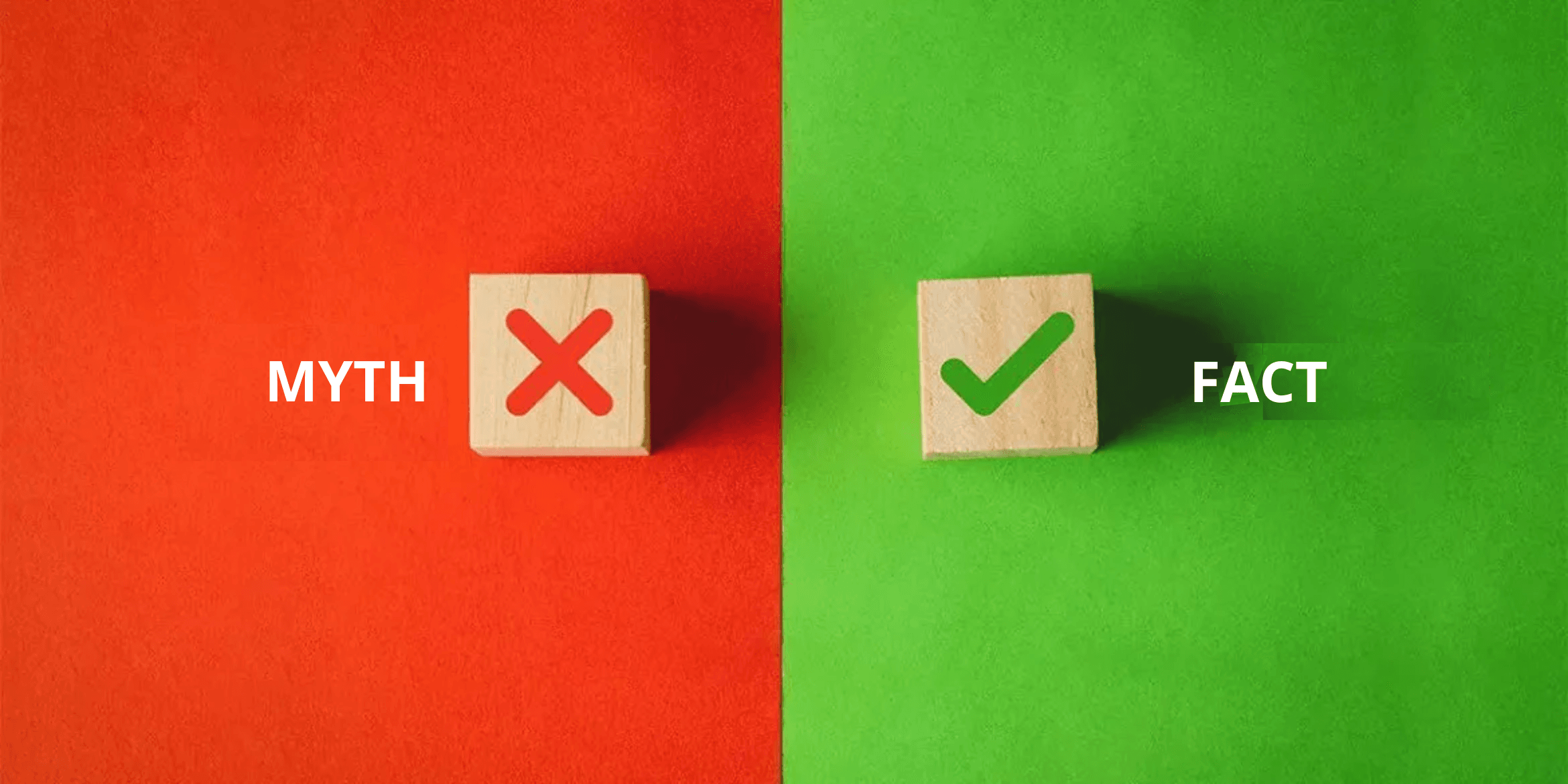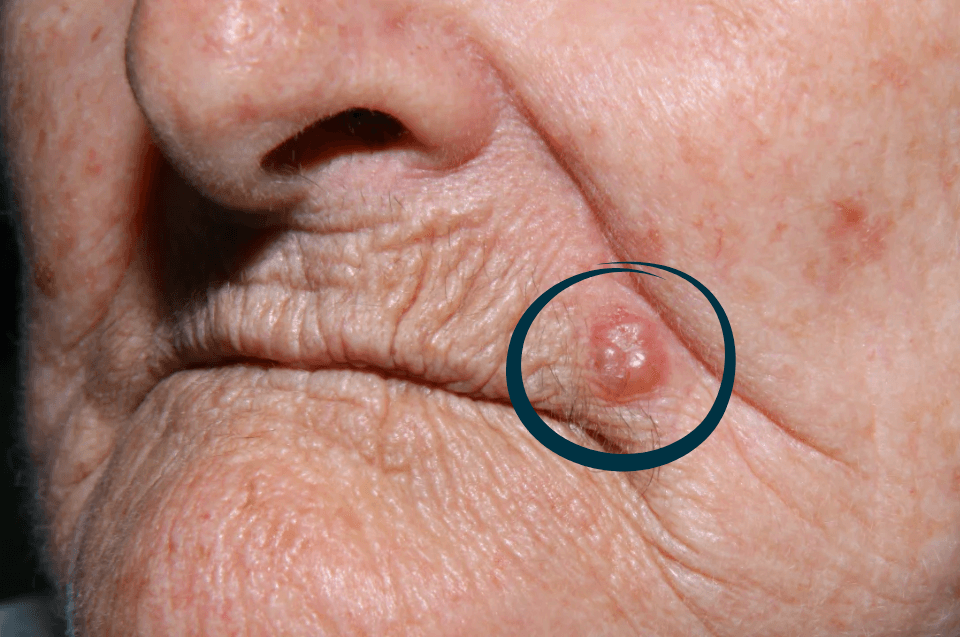We often hear health advice passed down from generation to generation. Some of it makes sense, but much of it is just popular myth without any scientific basis. The confusion between myth and truth can lead to ineffective — and sometimes even harmful — habits.
In this article, we’ll uncover some of the most common myths about diseases, daily habits, and health care. And of course, we’ll explain what science says about each one.
“Cold weather makes you sick”
❌ Myth!
Cold weather alone doesn’t cause illness. What actually happens is that in winter, people tend to stay indoors more often, in poorly ventilated spaces, which makes it easier for respiratory viruses like the cold and flu to spread. So, the issue isn’t the cold itself, but the increased exposure to infected people.
“Getting caught in the rain gives you the flu”
❌ Myth!
Wearing wet clothes or getting rained on doesn’t cause the flu or a cold. The flu is caused by the influenza virus, which is spread through airborne droplets or contact with contaminated surfaces. However, if your immune system is already weakened, the discomfort from being cold might allow a latent infection to manifest — which may wrongly reinforce the idea that “the rain caused the flu.”
“Sleeping with wet hair makes you sick”
❌ Myth with a hint of truth.
Sleeping with wet hair doesn’t cause the flu or a cold, as these are caused by viruses. However, keeping your scalp damp for a long time can promote the growth of fungi and bacteria, potentially leading to seborrheic dermatitis, dandruff, or even scalp infections. Plus, the friction between wet hair and a damp pillow can weaken hair strands.
“Air conditioning causes the flu”
❌ Myth!
Air conditioning doesn’t cause colds or the flu. The issue lies in poorly maintained units, which can accumulate dust mites, fungi, and bacteria — triggering respiratory allergies or sinus infections. Additionally, dry air can dry out the airways, making the body more vulnerable.
“Walking barefoot causes a sore throat”
❌ Myth!
Walking barefoot doesn’t directly affect your throat. Sore throats are usually caused by viral or bacterial infections. In some more sensitive people, contact with a cold floor might cause mild body cooling, but that’s not enough to trigger an infection.
“If you sneeze three times, you have the flu”
❌ Myth!
Sneezing is the body’s response to irritation in the airways, which can be caused by allergies, dust, perfumes, or sudden temperature changes — not necessarily an infection. Colds and flu are typically accompanied by other symptoms like fever, body aches, and coughing.
“Vitamin C prevents the flu”
❌ Myth!
While vitamin C helps the immune system, it doesn’t prevent the flu. Studies show that regular intake may slightly shorten the duration of symptoms, but it doesn’t stop the infection. The best preventive method is still the annual flu vaccine.
“Wind causes facial paralysis”
❌ A common myth in Brazil.
Facial paralysis, like Bell’s palsy, has no direct link to wind or cold air. It is believed to be related to viral or inflammatory reactions affecting the facial nerve. Wind might cause muscle discomfort, but it doesn’t cause paralysis.
“People with high cholesterol should avoid all eggs”
❌ Myth!
Eggs used to be seen as villains, but today we know they are a healthy source of protein and nutrients like choline and vitamin D. For most people, eating eggs in moderation (up to one per day) doesn’t increase cardiovascular risk. The real issue lies in an overall diet high in saturated and trans fats.
“Drinking milk with mango is harmful”
❌ A historical and cultural myth.
This myth originated during colonial Brazil as a way to prevent enslaved people from consuming mango with milk, which was a restricted food. There is no scientific basis for this claim — the combination is perfectly safe for people who are not lactose intolerant or allergic to tropical fruits.
“Taking antibiotics helps cure the flu”
❌ A dangerous myth!
The flu is caused by a virus, and antibiotics only work against bacteria. Misusing antibiotics can lead to bacterial resistance, making future treatments ineffective. Never self-medicate. Always consult a doctor.
“Sweating eliminates toxins from the body”
❌ Myth!
Sweat is mostly made up of water and minerals. Toxin elimination primarily occurs through the liver and kidneys. Sweating helps regulate body temperature — it is not a detox process.
“If there’s no fever, you’re not sick”
❌ Myth.
Not all illnesses cause fever. Some infections, autoimmune disorders, chronic diseases, and even cancers can develop without fever. Likewise, the absence of fever doesn’t rule out the seriousness of a medical condition.
Conclusion
Debunking popular health myths is a way to promote public health education and prevent people from following misleading advice. Many of these myths persist due to tradition, culture, or fear, but science is here to guide us with clarity and safety.
It’s important to always seek information from reliable sources and consult healthcare professionals when in doubt. Prevention and knowledge are our greatest allies in staying healthy — and avoiding confusion that could interfere with the treatment of real illnesses.
SEO Keywords: health myths, sleeping with wet hair is harmful, does cold weather cause the flu, getting caught in the rain makes you sick, walking barefoot causes sore throat, air conditioning causes flu, vitamin C prevents flu, antibiotics cure the flu



